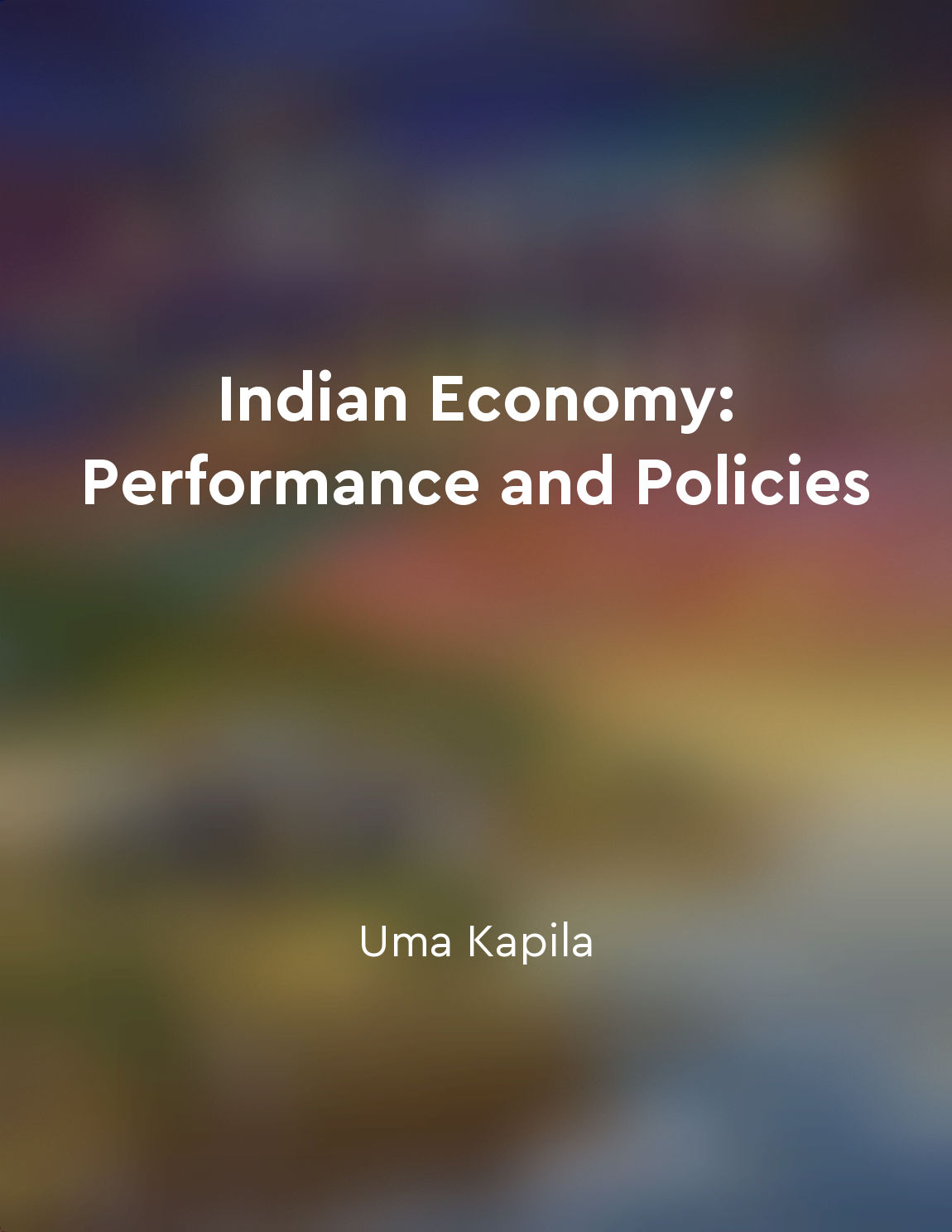Structural transformation growth sustainable development from "summary" of Indian Economy: Performance and Policies by Uma Kapila
The concept of structural transformation is essential for achieving sustainable development in the Indian economy. Structural transformation refers to the process of shifting resources from traditional, low-productivity sectors to more modern, high-productivity sectors. This transformation is crucial for fostering long-term economic growth and development. By reallocating resources from sectors with low productivity, such as agriculture, to sectors with higher productivity, such as manufacturing and services, countries can increase their overall output and improve living standards. This structural transformation is necessary to escape the cycle of poverty and underdevelopment that plagues many developing countries. In the context of India, achieving sustainable development requires a significant structural transformation in the economy. Despite the progress made in recent years, India still relies heavily on agriculture for employment and income generation. This over-reliance on agriculture is a major obstacle to sustainable development, as the sector is characterized by low productivity and limited scope for growth. To overcome these challenges, India must focus on promoting industrialization and diversifying its economy. By investing in sectors such as manufacturing, technology, and services, India can create new opportunities for employment and income generation. This structural transformation will not only boost economic growth but also improve the overall quality of life for Indian citizens. Furthermore, structural transformation is essential for achieving sustainable development in the face of global challenges such as climate change and resource depletion. By shifting towards more sustainable industries and practices, India can reduce its environmental footprint and ensure the long-term viability of its economy.- Structural transformation is a key driver of sustainable development in the Indian economy. By reallocating resources towards high-productivity sectors and promoting sustainable practices, India can achieve long-term growth and prosperity for its citizens. This transformation is crucial for overcoming the challenges of poverty, underdevelopment, and environmental degradation that currently hinder India's progress.
Similar Posts
Gupta Empire witnessed a golden age of art and literature
The era of the Gupta Empire in India was marked by a flourishing of art and literature, which is often referred to as a golden ...

Policymakers must consider dynamic capabilities
Policymakers must be mindful of the dynamic capabilities of firms when designing and implementing industrial policies. These dy...
The arrival of Islam led to significant cultural exchange
The spread of Islam in India brought about a significant interchange of cultural practices and ideas. This exchange was not jus...
Developing a positive attitude can drive change
The power of positivity cannot be underestimated when it comes to addressing the challenges of climate change. By cultivating a...

The oil industry has played a crucial role in Assam's economy
The discovery of oil in Assam marked a turning point in the economic landscape of the region. The industry quickly grew to beco...
Building longterm partnerships with stakeholders
The Tata group has always believed in the importance of fostering strong relationships with its stakeholders. This philosophy g...
Gender equality is crucial for inclusive growth
Gender equality plays a significant role in fostering inclusive growth within an economy. When women are given equal opportunit...


